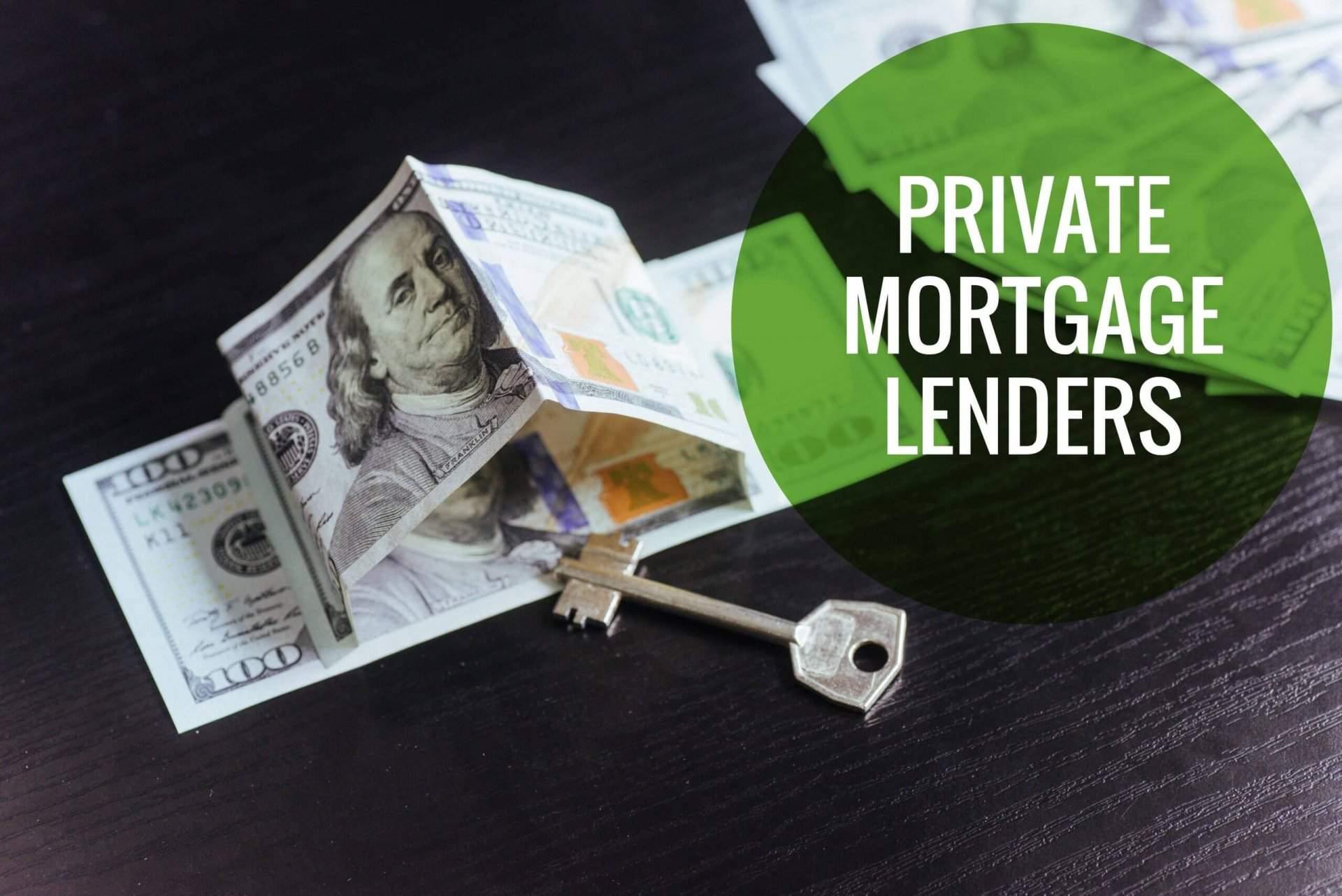All Regarding Mortgage Lending: Trick Insights for Homebuyers and Investors
Mortgage lending is an intricate landscape, offering various loan kinds tailored to varied consumer requirements. Comprehending the nuances of conventional, FHA, VA, and USDA car loans can significantly affect homebuyers and capitalists alike. In addition, credit score ratings play a pivotal role in protecting positive rates of interest. As the home mortgage application process unravels, numerous crucial factors come right into play, influencing both approval and terms. What are the necessary actions and techniques to browse this elaborate process successfully?
Comprehending Different Sorts Of Mortgage Loans
Recognizing the various kinds of mortgage loans is important for possible homebuyers, as each choice accommodates various monetary scenarios and demands. Traditional lendings, normally offered by private lenders, need a higher credit rating and usually include a deposit of at the very least 20%. Conversely, FHA lendings are government-backed and developed for first-time customers, permitting lower credit rating and smaller sized down payments. VA loans, available to experts and energetic military participants, offer favorable terms and no deposit need. Additionally, USDA loans support rural property buyers with low to moderate revenues, supplying zero down payment choices. Fixed-rate home loans maintain consistent regular monthly settlements over the lending term, while adjustable-rate mortgages begin with lower prices that can vary. By recognizing these differences, buyers can make informed decisions tailored to their monetary situations and long-lasting goals. Picking the appropriate home loan kind is a considerable action in the home-buying procedure.
The Relevance of Credit Report in Mortgage Approval
Credit report play a necessary duty in the home mortgage authorization process, acting as a crucial sign of a borrower's credit reliability. A greater credit rating can result in much more favorable rates of interest, considerably affecting the total cost of a home mortgage. Comprehending the principles of credit history ratings and exploring means to enhance them can significantly benefit prospective buyers.

Credit Report Basics
A solid credit report plays a vital duty in the home mortgage approval procedure, influencing lending institutions' understandings of a borrower's reliability. Credit report, typically varying from 300 to 850, show an individual's credit reliability based on their financial background, including repayment history, credit score usage, length of debt background, sorts of charge account, and current queries. Lenders evaluate these scores to gauge the danger connected with providing cash. Normally, a higher credit rating score indicates reduced risk, resulting in a smoother authorization procedure. Homebuyers and financiers need to regularly inspect their credit history records for mistakes and take actions to enhance their scores, such as paying expenses on time and reducing superior debts. A solid credit report is a crucial possession in protecting favorable home loan terms.
Influence On Rate Of Interest Prices
Passion prices on home mortgages are considerably influenced by the borrower's credit history, which functions as a key sign of monetary integrity. Lenders assess credit history to evaluate the risk connected with expanding a lending. Private Mortgage Lenders Savannah GA. Higher credit report generally result in lower rates of interest, as they suggest that consumers are more probable to repay their financial debts. Alternatively, reduced credit rating scores might bring about higher prices, mirroring the raised danger perceived by lending institutions. This relationship emphasizes the importance of keeping a solid credit rating account for potential customers. Understanding exactly how credit report impact interest prices can encourage homebuyers and investors to make enlightened decisions, potentially conserving them significant quantities over the life of their home mortgage

Improving Your Debt Rating
Homebuyers crazy about securing desirable mortgage terms must recognize the essential duty of credit rating in the approval procedure. A greater credit history usually causes reduced rates of interest, which can substantially lower the total expense of a home mortgage. Lenders assess credit history ratings to gauge an applicant's monetary reliability, influencing their choice to authorize or deny a home mortgage application. To enhance their ratings, possible debtors should concentrate on prompt bill repayments, lowering arrearages, and preventing brand-new credit score questions. Consistently assessing debt reports for mistakes can also assist maintain accuracy. By taking these steps, buyers can enhance their credit reliability, inevitably boosting their opportunities of obtaining a home loan with beneficial conditions.
Secret Factors Influencing Rates Of Interest
Just how do different financial elements shape the landscape of home mortgage interest rates? Several crucial elements play a crucial duty in figuring out these prices. The Federal Reserve's monetary plan substantially affects rates of interest; when the Fed raises or lowers benchmark prices, home loan rates commonly adhere to match. Additionally, rising cost of living patterns influence the acquiring power of consumers, leading loan providers to readjust rates appropriately. Economic growth indicators, such as work prices and GDP development, likewise impact passion rates; a robust economic situation commonly results in greater prices because of raised need for car loans. Additionally, the bond market investigate this site functions as an important criteria; when bond yields climb, home loan rates often tend to enhance also. Individual consumer factors, consisting of credit scores score and debt-to-income ratio, can affect the details rate used. Understanding these dynamics aids homebuyers and investors make notified decisions in the home loan market
The Home Mortgage Application Process Discussed
What actions are involved in securing a home mortgage? The home loan application procedure starts with the consumer event required documents, such as income declarations, income tax return, and credit report. Next, the borrower selects a lending institution and submits an official application, providing all called for information. The lending institution then performs a credit report check and analyzes the borrower's financial stability.Following this, the lender will perform an evaluation of the home to establish its market price. Once the property is assessed, the lender evaluates the application, including the debtor's monetary background and the assessment results, to determine whether to accept or refute the loan. If authorized, the customer receives a lending estimate describing the terms and prices related to the mortgage.Finally, the debtor testimonials and indicators the closing papers, formally securing the home loan. Comprehending this procedure is crucial for prospective homeowners as they browse the complexities of home loan loaning.
Tips for First-Time Homebuyers
Novice buyers encounter an one-of-a-kind collection of obstacles when entering the realty market. Comprehending the different sorts of home loans offered and efficiently budgeting for their acquisition are necessary action in the homebuying journey - Private Mortgage Lenders Savannah GA. By equipping themselves with this knowledge, they can make educated choices that straighten with their monetary objectives
Comprehending Mortgage Types
Maneuvering the globe of home mortgage kinds can be intimidating for those going into the real estate market for the very first time. Comprehending the various choices is important for new homebuyers. Fixed-rate home loans provide foreseeable month-to-month payments, making budgeting easier. On the other hand, adjustable-rate home mortgages (ARMs) normally start with lower prices that can vary over time, which might be appealing yet lugs threats. Government-backed finances, such as FHA and VA loans, provide added assistance for qualified customers, typically calling for lower deposits. Furthermore, new homebuyers might check out conventional financings that follow specific criteria. Each mortgage type has distinct benefits and drawbacks, so it is vital for newbies to read what he said study completely and examine their lasting monetary objectives before deciding.
Budgeting for Your Purchase
When beginning on the trip of homeownership, effective budgeting is vital for prospective customers to ensure monetary security throughout the process. First-time homebuyers need to begin by assessing their revenue and expenses, ensuring they allot funds for a deposit, closing prices, and relocating expenses. Establishing a month-to-month budget that includes home loan settlements, real estate tax, insurance policy, and upkeep costs is essential. Buyers must likewise consider prospective changes in rates of interest and market problems. Producing an emergency fund can provide a security internet for unexpected expenses. Additionally, customers might gain from getting in touch with economic advisors or using on the internet budgeting devices to acquire a more clear understanding of their financial scenario. Careful preparation inevitably brings about educated decisions and an effective home acquisition.
Funding Options for Real Estate Investors
What funding options are available to investor seeking to expand their portfolios? Capitalists can discover numerous methods. Conventional home loans continue to be a popular selection, commonly needing a bigger down repayment and good credit. Alternatively, capitalists might think about hard money fundings, which are temporary financings secured by property, providing quick accessibility to capital however at greater passion rates.Another choice is exclusive funding, where investors can obtain from close friends or family members, typically with more versatile terms. For those seeking to fund numerous buildings, portfolio loans might be ideal, allowing multiple homes to be packed under one mortgage.Additionally, property crowdfunding systems have actually emerged, making it possible for investors to merge resources with others for residential property investments. Leveraging equity in existing properties with cash-out refinancing can give funds for new investments. Each option has its benefits and risks, calling for careful consideration based upon individual investor goals.
Regularly Asked Inquiries
What Are the Normal Closing Prices Linked With a Home loan?
Closing costs commonly include appraisal fees, title insurance coverage, lawyer costs, and source charges. These expenditures typically range from 2% to 5% of the financing quantity, influencing the total economic dedication for the purchaser.
For how long Does It Require To Shut on a Mortgage?
The period to close on a home mortgage commonly varies from 30 to 45 days, depending upon various elements, including lender effectiveness, documentation completeness, and market problems, which can greatly affect the overall timeline.

Can I Refinance My Mortgage Later On?
Yes, re-financing a mortgage later on is possible. Property owners often seek refinancing to protect reduced rate of interest rates, reduce monthly settlements, or gain access to home equity. However, they must think about associated charges click for source and their economic situation prior to proceeding.

What Happens if I Miss a Home Loan Repayment?
If a mortgage repayment is missed, the debtor may deal with late costs, possible damages to their credit report, and possible repossession procedures. Lenders generally use moratorium, yet consistent missed payments can lead to serious repercussions.
Exist Charges for Paying off My Mortgage Early?
Many loan providers enforce prepayment penalties for very early home mortgage benefit, possibly setting you back borrowers additional costs. Nevertheless, terms vary considerably amongst loan providers, so it is essential for debtors to evaluate their mortgage arrangements before making very early payments.